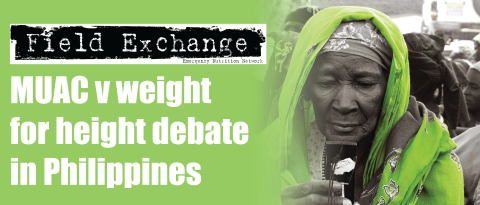Political economy of adaptation through crop diversification in Malawi
Summary of article1

A government agricultural extension officer showing a farmer how to care for a cassava plant (FAO supported project)
The seriousness of the problem of climate change and its negative effects on livelihoods is widely recognised in Malawi, even though no single coherent policy framework exists. However, there are several sector policies such as crop production (1990), national environmental management plan (1994), national forest (1996), national irrigation (2000), amongst others. In addition, Malawi developed and adopted the National Adaptation Programme of Action (NAPA) in 2006, which serves as a framework for climate change adaptation efforts in the country. The objectives of NAPA are to improve community resilience, restore forests, improve agricultural production and improve preparedness for floods and droughts.
A recent article examines the opportunities and challenge of climate change adaptation in Malawi using the case of crop diversification. It draws from an innovative experiment about policy engagement and influence between two sets of researchers: those working with the Research to Policy for Adaptation project and Participatory Action Researchers. The former are mainly experts in policy processes, whereas the latter are experts in climate change adaptation. The engagement between these two groups was guided by the conceptual framework for policy processes developed in the Knowledge Technology and Society (KNOTS) team at the Institute of Development Studies, UK.
The framework analyses policy processes from three perspectives: narratives and evidence, actors and networks, and politics and interests. The basic thrust of the framework is the way in which policies are talked about, and the associated values, power relations and politics that frame policies in a particular way. The framework draws attention to the fact that policymaking and processes cannot be reduced to universal recipes that are supposed to work irrespective of the time and place in which they are adopted. In other words, policies are more effective when they are informed by an understanding of power relations, incentives and change processes.
The key findings of this research included the following:
- While constantly making references to the ideals of crop diversification, the main preoccupation of the government is to achieve food security because of its centrality in the country’s electoral politics. For the government, food security can be guaranteed by the use of high-yielding hybrid maize varieties.
- Seed companies are keen to promote hybrid maize seeds since they are their main product and through the subsidy programme, seed companies are guaranteed a ready market.
- Donors are interested in promoting a private sector-driven input supply system through the promotion of agro-dealers to fill the vacuum following the dismantling of the state-driven input supply system through liberalisation. This has made hybrid maize the dominant seed that is made available to farmers through the input subsidy programme.
- Most communities argue that crop diversification cannot be a success due to the cultural orientation that equates food to maize. Foodstuffs made from alternative cereals, such as millet and sorghum, are widely perceived as ‘inferior’ to the extent that households resorting to such foodstuffs are taken to be desperate.
- Most international humanitarian nongovernmental organisations (NGOs) perceive crop diversification as desirable but not attainable as long as weather index insurance schemes are exploited as commercial ventures by the private sector. They condemn the insurance schemes as a barrier to crop diversification mainly due to their institutional arrangements. Farmers take loans from a designated bank, procure seeds from a specified company, and dispose of their produce to a designated buyer. Not only are the farmers bound up in a particular institutional arrangement that effectively curtails their freedom, but the seed companies involved are known to promote almost exclusively hybrid maize.
The major lesson from the study is that policy influence is not merely a question of generating robust scientific evidence and making it available to policymakers. It is as much about generating new evidence as it is creating strategic partnerships, coalitions and alliances. Policy engagement and influence entails engaging with policymakers for them to understand the implications of new or even old evidence as vital input into their decision- making processes. Therefore, the manner in which evidence is packaged, how it is communicated to policymakers, by whom and when, matters a great deal for researchers to effectively engage with the policy processes and influence the final outcomes. The main implication of the KNOTS framework is that processes of discussing, negotiating, approving and implementing policies are as important as the scientific content of the policies themselves.
The experience with crop diversification show that dominant stakeholders almost always have their way and that implementation of crop diversification has been constrained by a dominant narrative that equates food security with maize. The input subsidy programme, which is the single most important resource in the agricultural sector, has been captured by politicians primarily to advance their own political goals. Alternative narratives had had no significant effect on the mainstream narrative of crop diversification that equates food security with availability of maize. The case study sheds light on the dynamics of political, economic and social processes that either promote or block pro-poor change.
1Chinsinga.B, Mangani. R, and Mvula.P (2011).The political economy of adaptation through crop diversification in Malawi. IDS Bulletin Volume 42, Number 3, pp 110-117, May 2011.
Imported from FEX website


